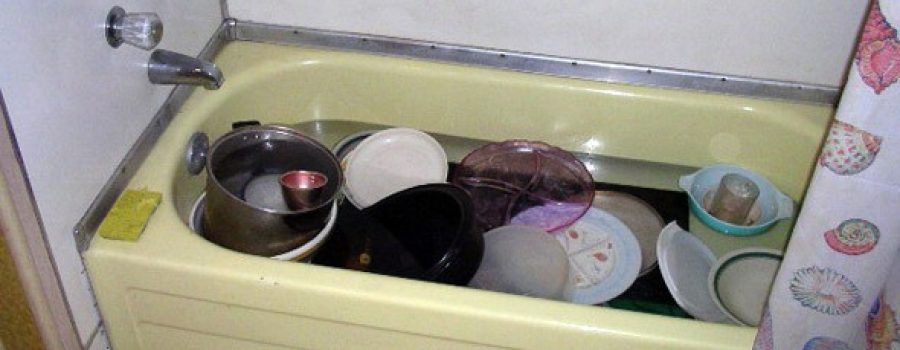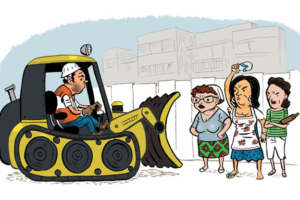There is one particularly vivid scene in Matt Desmond’s Evicted that really stuck out at me. He detailed how strained tenant-landlord relationship had led one tenant to forego reporting plumbing problems. It started with the kitchen sink clogging. Tenants started using the bathroom to do dishes and prepare meals. When the bathtub itself clogged, the tenant and her family had to boil water and shower out of a large container in the living room. This happens all while the water grows rancid, sitting in the sink and bathtub.
Most of us would be horrified by this. However, situations like the one detailed by Desmond is not confined to just the midwest but quite common across the country. So I think it’s useful to channel the collective wisdom of all the landlords, investors, and property managers I’ve interviewed to disband some major misconceptions about landlording.
Myth 1: Landlording is NOT a passive endeavor
In the real estate business, marketers love using buzzwords to capture our attentions. Words like mailbox money, passive income, infinite returns, are used so pervasively because, well… they simply work. However, real estate is rarely passive, even if you outsource to a property manager.
As a starter house hacker and investor, you’ll likely be actively managing your property. You may even be doing basic fixes yourselves. Additionally, you’ll have to anticipate issues and repairs that might spring up at you, at nights and weekends. While there are hacks and tricks to offset some of these responsibilities to a handyman or better training for the tenants, you are ultimately accountable. And the weight of accountability is anything but passive.
Myth 2: Tenants are NOT your enemies
If you’re in the real estate circle long enough, you’ll inevitably hear horror stories between landlords and tenants. Tenants that destroy properties. Tenants that won’t move out. Evictions that linger for months. To start, my philosophy (as well as many great landlords I know) for tenant management, is how I can provide a great living situation to my residents. This is a customer-first approach that somehow we often don’t apply to the world of real estate. This doesn’t mean that you can let tenants violate the lease but it means taking time to empathize and help find solutions that work for both of you.
Trouble occurs often when landlord adopt an adversarial mindset and immediately resort to legal actions. These responses often bring out the worst in people because the threat of removing someone from their shelter goes against our very primal need for survival.
Everyone wants to be loved, to feel like they belong, and be respected. This is a universal truism so if we approach every tenant situation with this frame, then it’s very likely the tenants will reciprocate kindly as well.
Myth 3: Landlording is NOT a zero sum game
This last misconception is an extension of the 2nd myth but applies more broadly to how we treat our real estate investment, and how we shouldn’t view our investments through a mercenary lens. Unlike the stock exchange, your property is not merely a ticker that flashes green or red on the screen. It’s a living, breathing component of your community.
What I mean by zero-sum game is an extractive mindset, where the investment strategy is to pull as much cash out of the deal as possible. We’ve all read of examples where hedge fund manager dramatically raises drug prices to maximize profit. Or the investors that bought a local newspaper only to layoff it’s entire staff to sell off it’s buildings for redevelopment. We even see this in some of our neighborhoods, where windows are left broken for months and years. Yard is overgrown with weeds. Sidings are falling off. Furnitures are permanently left on the lawn.
As a landlord, you have a responsibility to not only stay solvent but also invest in the community. That means not deferring your maintenance, investing in your neighborhood, connecting your residents to the community, and sharing local businesses. If you show that you invest in your community and your property, the tenants will do so in kind. This is how a community thrives.





